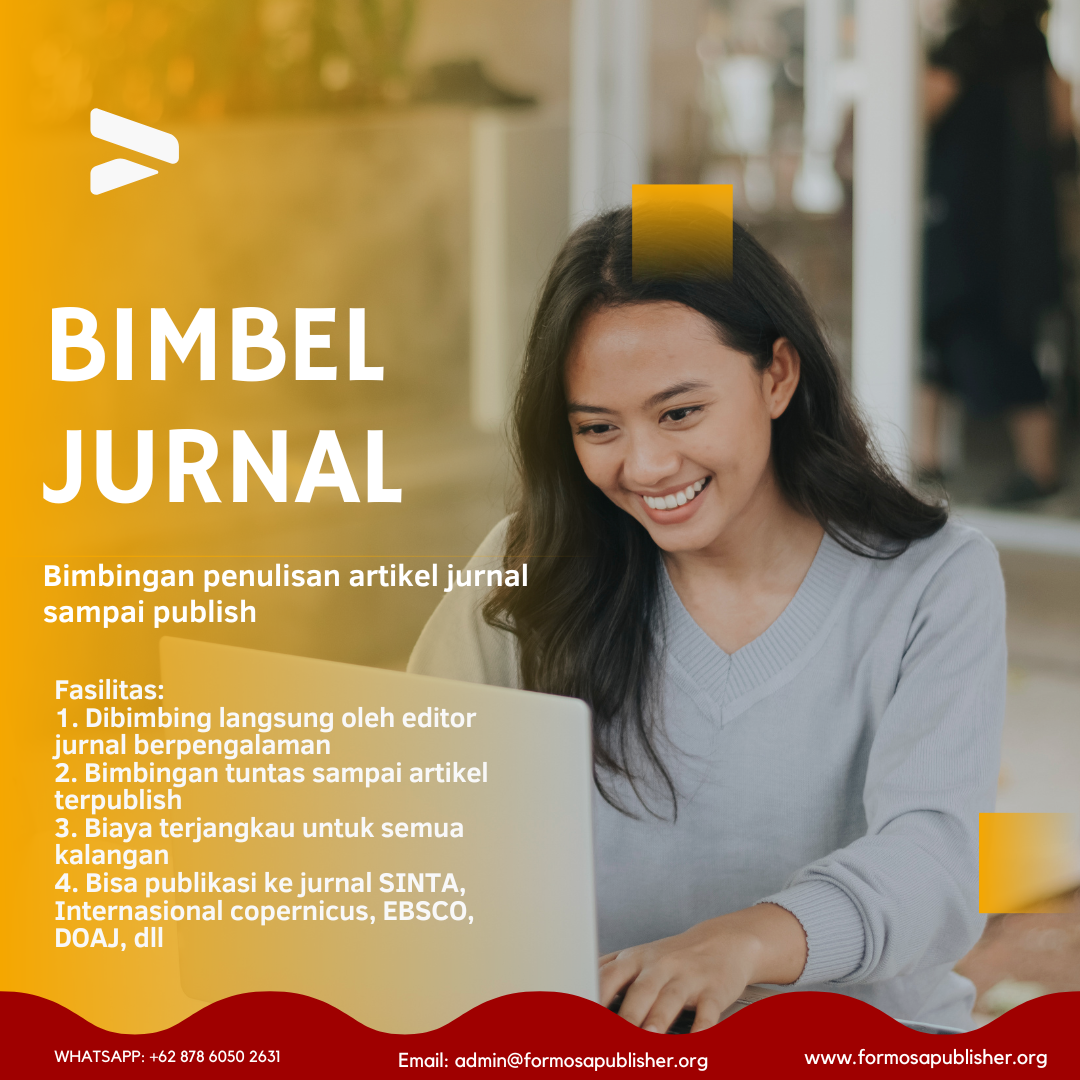The Function of Leadership and Work Motivation on the Performance of Literature Evangelists within the Organizational Scope of the Seventh-day Adventist Church
DOI:
https://doi.org/10.55927/mudima.v3i3.2482Keywords:
Evangelists, Leadership, Literature, Motivation, PerformanceAbstract
Literature is a word that refers to print media or online media whose purpose is as a medium of communication to convey news or general knowledge information to mankind. This ministry is engaged in the dissemination or distribution of spiritual print media in the form of tracts, magazines, health books and spiritual books with the sole aim of spreading the everlasting gospel throughout the world. To distribute such books need evangelist literature. Literature Evangelists are the ones who are at the forefront of this evangelistic ministry because they are the ones directly involved in interacting with the community, so they need to have a spirit of good performance and full of submission to God. However, the reality is that the Literature Evangelist Service has not been running effectively and efficiently. This research uses qualitative methods by analyzing and concluding the data obtained related to research. The purpose of this study was to determine the influence of leaders in improving the performance of literature evangelists and literature evangelists who have the right motivation to be involved in literature evangelism services. In doing a job a person needs one or more motivations that can be the spirit or basis for doing a job. Strong motivation will encourage someone to be able to do his job well. In this case the leader has the responsibility to provide motivation in improving the performance of literature evangelists.
References
Afandi, P. (2018). Manajemen Sumber Daya Manusia (Teori, Konsep dan Indikator). Zanafa Publishing.
Agus, S. B. dan A. M. (2013). Transformational Leadershif. PT. Raja Grafindo Persada.
Anoraga, P. dan N. W. (2003). Psikologi Dalam Perusahaan. PT Rineka Cipta.
B. Uno, H. (2012). Teori Motivasi dan Pengukurannya. Bumi Aksara.
Collins, J. (2001). Good to Great, Why Some Companies Make The Leap and Other Don’t. Harper Collins Publisher Inc.
Danim, S. (2004). Motivasi Kepemimpinan & Efektivitas Kelompok. PT Rineka Cipta.
Dessler, G. (2002). Manajemen Sumber Daya Manusia. PT. Prenhalindo.
Ella. (2015). Evaluasi Kinerja SDM. PT. Refika Cipta.
Ellen G. White. (1985). Juru Kabar Pengharapan. Indonesia Publishing House.
Ellen G. White. (1995). Penuntun Pelayanan Kristen. Indonesia Publishing House.
Fahmi, I. (2017). Manajemen Sumber Daya Manusia. Alfabeta.
Faigao, H. F. (1997). Penuntun Untuk evangelisasi literatur. Departemen Penerbitan Divisi Asia Pasifik Singapura.
Harianto, G. (1997). Mission for city. Agiamedia.
Hasibuan, M. S. (2001). Motivasi dan Manajemen. Raja Grafindo Persada.
Herzberg, Frederick, B. Mausner, B, S. (1959). The Motivation New. Wiley.
Indrasari, M. (2017). Kepuasan Kerja dan Kinerja Karyawan Tinjauan dari Dimensi Iklim Organisasi, Kreativitas Individu, dan Karakteristik Pekerjaan. Indomedia Pustaka.
Iskandar. (2009). Metode Penelitian Pendidikan dan Sosial: Kuantitatif dan Kualitatif. Gaung Persada Pres.
James, A. F. S. (1996). Manajemen. Penerbit PT. Prenhallindo.
Juita Lusiana Sinambela, Rolyana Ferinia, Stimson Hutagalung, J. S. (2021). Karakter Kepemimpinan Musa Inspirasi Setiap Pemimpin. SCRIPTA: Jurnal Teologi Dan Pelayanan Kontekstual, 12(2), 123–136. https://doi.org/https://doi.org/10.47154/scripta.v12iNo.%202.137
Juita Lusiana Sinambela, Rolyana Ferinia Sibuea, Stimson Hutagalung, J. S. (2021). Pentingnya Keterlibatan Anggota Jemaat Sebagai Seorang Kristen Dalam Penginjilan Terhadap Pertumbuhan
Gereja. Teokristi: Jurnal Teologi Kontekstual Dan Pelayanan Kristiani, Vol 2(No 2), 82–93. https://e-journal.sttberitahidup.ac.id/index.php/jtk/article/view/194
Kartono, K. (2003). Pemimpin dan Kepemimpinan (Apakah Kepemimpinan Abnormal Itu). P.T Raja Grafindo Persada.
Kasmir. (2016). Manajemen Sumber Daya Manusia (Teori dan Praktik). PT Rajagrafindo Persada.
Lusiana Sinambela, J., Sinaga, J., Pelawi, S., & Tinenti, M. L. (2022). Kepemimpinan Harun Pada Zaman Bangsa Israel. Asian Journal of Philosophy and Religion, 1(1), 29–36.
https://doi.org/10.55927/AJPR.V1I1.431
Mangkunegara, A. A. A. P. (2012). Evaluasi Kinerja Sumber Daya Manusia. PT. Rafika Aditama.
Maxwell, J. C. (2012). Leadership 101. Mic Publishing.
Montgomery, A. J., Panagopolou, E., de Wildt, M., & Meenks, E. (2006). Work-family interference, emotional labor and burnout. Journal of Managerial Psychology, 21(1), 36–51.
https://doi.org/10.1108/02683940610643206/FULL/XML
Mujiono, I. (2002). Kepemimpinan dan Keorganisasian. UII Press.
Munandar, A. S. (2014). Psikologi Industri dan Organisasi. Psikologi Industri dan Organisasi (UI-Press).
Nana Sudjana, A. R. (2010). Media Pengajaran. Sinar Baru.
Nawawi, H. (2000). Manajemen Sumber Daya Manusia Untuk Bisnis yang Kompetitif. Gajah Mada University Press.
Ni’mah Suseno, M., Islam, U., Kalijaga, N. S., & Sugiyanto, Y. (2015). Pengaruh Dukungan Sosial dan Kepemimpinan Transformasional Terhadap Komitmen Organisasi dengan Mediator Motivasi Kerja. Jurnal Psikologi, 37(1), 94 – 109. https://doi.org/10.22146/JPSI.7695
Nitisemito, A. (1997). Manajemen Personalia. Ghalia Indonesia.
Oswald sanders. (1976). kepemimpinan rohani. Yayasan Kalam Hidup.
Pinder. (2013). Work motivation: Theory, Issues And Applications. Scoff, Foresmen.
Rismawati, M. (2018). Evaluasi Kinerja: Penilaian Kinerja Atas Dasar Prestasi Kerja Berorientasi Kedepan. Celebes Media Perkasa.
Robbins, Stephen P., Judge, T. A. (2013). Organizational Behavior Edition 15. Pearson Education.
Robbins, P. S. (2003). Perilaku Organisasi. PT Indeks Kelompok Gramedia.
Robbins, P. S. (2006). Perilaku Organisasi. Erlangga.
Simanjuntak, P. J. (2005). Manajemen dan Evaluasi Kinerja. Lembaga Penerbit Fakultas Ekonomi UI.
Sinaga, J., Sagala, R. W., Ferinia, R., & Hutagalung, S. (2021). Peran Fundamental Gembala Bagi
Guru Saat Pandemik Dalam Pembelajaran Online Berbasis Karakter: Tantangan Dan Sistem
Pendukung. Jurnal Pendidikan Agama Kristen (JUPAK), 2(1), 13–35.
https://ejurnal.sttkadesiyogyakarta.ac.id/index.php/jupak/article/view/61
Sugiyono. (2005). Metode Penelitian Administrasi. Alfabeta.
Sukarno, E. (2004). Prinsip-prinsip Manjemen, Aflikasi dalam Pemasaran. PT Gramedia Pustaka Utama.
Sutrisno, E. (2014). Manajemen Sumber Daya Manusia. Kencana Predana Media Group.
Suwatno, Priansa, D. J. (2018). Manajemen Sumber Daya Manusia Dalam Organisasi Publik Dan Bisnis. Alfabeta.
Wibowo. (2014). Perilaku Dalam Organisasi. Rajawali Pers.
Winardi. (2001). Motivasi dan Pemotivasian dalam Manajemen. PT. Raja Grafindo Persada.
Wirawan. (2009). Evaluasi Kinerja Sumber Daya Manusia Teori Aplikasi dan Penelitian. Penerbit: Salemba Empat
Downloads
Published
How to Cite
Issue
Section
License
Copyright (c) 2023 Zwarsa Silalahi, Rudolf Weindra Sagala, Alvyn C. Hendriks

This work is licensed under a Creative Commons Attribution 4.0 International License.































